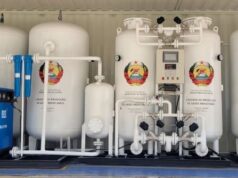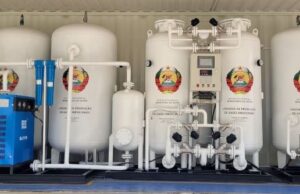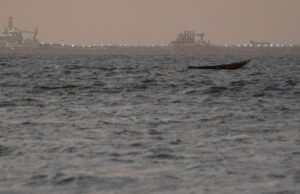
(4 minutes read)
The German government pledged recently to invest 4 billion euros (US$4.37 billion) in African green energy projects until 2030
Africa these days is getting the right focus from investors. The recently held G20 Compact with Africa Summit, which took place in Berlin witnessed an impressive array of investment proposals into Africa. The investors are mostly from Western Europe. Having been attended by various leaders including heads of state from Germany and Italy, the summit had captured international headlines.
The German government pledged recently to invest 4 billion euros (US$4.37 billion) in African green energy projects until 2030. German Chancellor Scholz discussed the pledge at a news conference on the sidelines of the G20 Compact with Africa summit. He did not mention any specific projects but said the materials used in green energy should be processed in the African nations they come from. This has to be seen as a commitment from the West African country to undertake at least the first level of processing at the place from where the raw material is mined. This will have twin effects. One such investment can create more jobs in Africa; two, countries investing in mining and processing will get a steady supply of the raw materials they are looking for.
Investing in Africa is getting traction globally. It is not difficult to analyse the underlying rationale. It has economic and geopolitical appeal. The economic appeal overrides the geopolitical one since Africa is the storehouse of rare earth used in futuristic manufacturing sectors like electronics, AI-based devices and instruments, Green Energy, and healthcare devices and the list is expanding. Its geopolitical significance emanates from the large number of countries that the continent represents. The critical mass of 55 countries is significant when it comes to decision-making in multilateral; and other international forums, forcing the superpowers to acknowledge its expanding bargaining power.
Compact with Africa aims to improve the participating countries’ economic conditions to make them more attractive for foreign private investment. The Compact with African countries includes Egypt, Ethiopia, Benin, Burkina Faso, Ivory Coast, Ghana, Guinea, the Democratic Republic of Congo, Morocco, Rwanda, Senegal, Togo and Tunisia.
However, any discussion about investment in Africa is incomplete if the Chinese presence in various African sectors is overlooked. Several African leaders taking part in the Compact with Africa discussion pointed out that Chinese presence was overwhelming and is set to grow in the coming years going by the hawkish approach of that country in reaching out to African countries and investing there.
Read Also:
https://trendsnafrica.com/germanys-compact-with-africa-dialogue-concluded/
https://trendsnafrica.com/germany-pledges-over-us-4-37-billion-for-african-development/
Moussa Faki, the chairperson of the African Union Commission, surmised the crux of Chinese presence. He said China was more audacious, perhaps they had more vision and they trusted the potential in Africa. He further added that the African continent was open to different partnerships alluding that the continent should not look at the source of investment and the only consideration should be: what is good for the continent.
Faki’s comments also referred to the need for improving governance structure in African countries, which is often fraught with perceived instability, corruption, and opaqueness. He underscored the need for a shared vision for attracting an inflow of large capital that could be invested in the continent.
That said, it is in the interest of Africa to follow a policy of openness without aligning with any forces since that would affect the attractiveness of investments. The region should follow a policy of open investments, irrespective of its origin -whether from East or West. Analysts opine that such an approach would amplify the economic and political maturity of the region and demonstrate how the region can move in the economic value chain.










